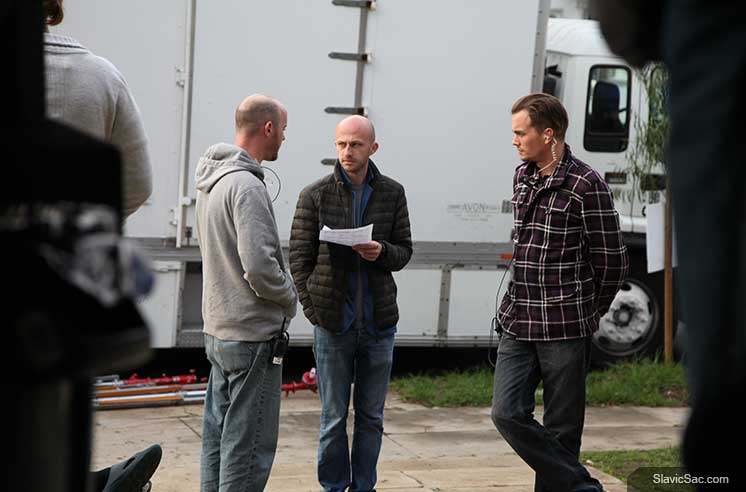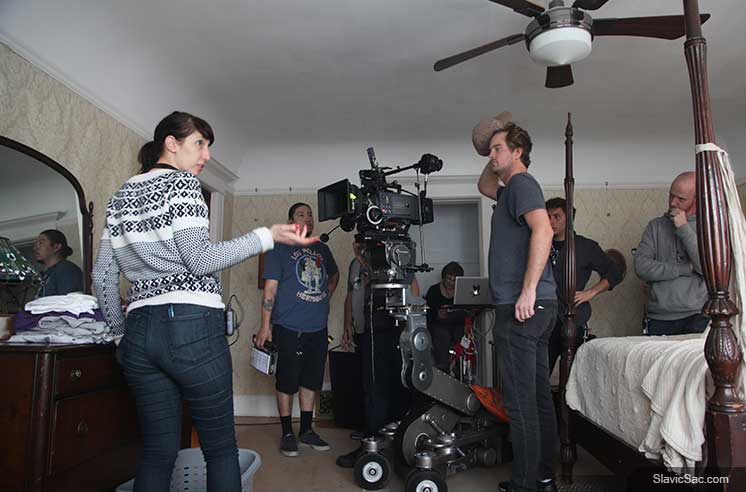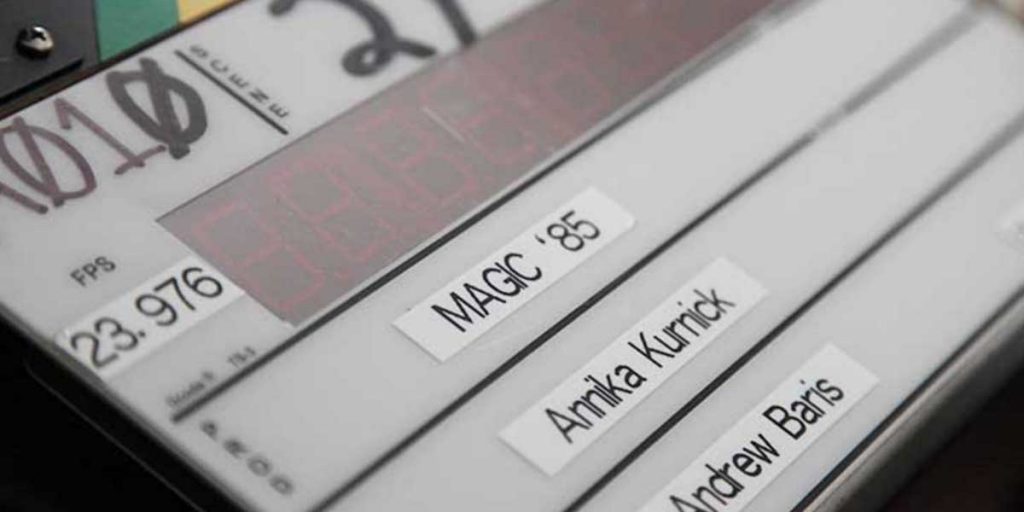Have you ever thought of what makes a film exciting and successful? It may be that the film’s budget is impressive, cinematography is great, but something is still missing – is it poor acting, unclear and confusing plot, or is it the director’s intention that’s downright baffling to the audience?
At times, one stumbles upon something truly great – the cast is exceptional, as well as the directing and the plot. The movie is fun, harmonious, and you watch it in one breath! A lot of times such a masterpiece sticks in people’s minds for a long time, gets high ratings at the box office, and awakens your curiosity about the film’s makers; you just wish you could meet them and shake their hand.
I was lucky to observe such acting over the period of several weeks on the set of the short film Magic ‘85 in Los Angeles last year.
The filming was sponsored by one of the most elite film schools in the USA – American Film Institute (AFI). It’s worth noting that this educational establishment was organized at the initiative of the U.S. thirty-sixth president, Lyndon Johnson, and is a sort of sanctuary of the American cinema. This school’s graduates become the most sought-after Hollywood experts in the world. The board of directors consists of such famous individuals as the director and producer Francis Coppola (six-time winner of the “Oscar” prize), Gregory Peck ( “Oscar” for “To Kill the Mocking Bird”), Sidney Poitier (“Oscar” for the best male actor in “Lilies of the Field,” 1963), and others.

The AFI graduates get credit for such movies as “Requiem for a Dream,” “Black Swan” (director Darren Aronofsky), “Lincoln,” “Shindler’s List,” “Saving Private Ryan” (cinematography by Janusz Kaminski), “Platoon,” “JFK,” “Django Unchained” (cinematography by Robert Richardson).
One of the AFI graduates, with the “producer” specialty, is a Russian Mikhail Makeyev, who came to Los Angeles from Moscow. Prior to that, he graduated from VGIK and LA Film School, where he studied directing.
To get a diploma, the student must not only attend classes but also, depending on the specialty of the educational establishment, produce a short film.
For his diploma, Michail produced Magic ‘85, the film about problems with AIDS in the USA in the mid-80-s. The story takes place against the backdrop of the legendary NBA finals between “Boston Celtics” and “Los Angeles Lakers.” The movie exposes the nature of the AIDS virus through the relationship of Gabriel, a 33-year-old hospice worker, and Trevor, a 34-year-old father, dying of AIDS.
Though it’s a short film (with an average budget of $60,000), the producer is swamped with work on the set. It includes obtaining multiple permits necessary for the shoots made in the streets of Los Angeles, organization of the work process, auditions and distribution of actors, as well as food supply for all the team members, which is not of the least importance.
There is never a dull moment for the producer because he never knows what he must deal with the next moment – if it rains, he must find an alternative venue, tents, and raincoats for the crew, and if an actor is ill, he must urgently come up with a suitable replacement, etc.
The director’s work is more creative and, thus, is as fascinating. Mostly, it’s about working with the cast and technicians.

Without getting into details, I will say one thing – creating any masterpiece isn’t a carefree walk on the beach. At times, you are killing yourself trying to solve numerous problems, and at other times, you are roaming around the set, bored out of your mind.
Cinematography is a group production, and a lot depends on the crew and how everyone is getting along to achieve a mutual goal. The goal is clear – to produce a movie that will satisfy not only the producer, but the audience as well, that will spark public discussions, make an impact, and, let’s be honest, bring a decent profit for the makers, meaning the more, the better.
Let’s take, for instance, an iconic American “Prison Break,” which for me and many other fans, is a great example of an extremely successful television series. Everything is superb here – talented acting alongside an intriguing and original plot.
The same point of view was expressed by Charles Baker, who’s played many exciting roles in tens of Hollywood movies, including in the TV series “Prison Break” (camper in the episode “Pursuit”) and “Breaking Bad” (Skinny Pete).
“To make a super successful movie, the whole team – from the director to the producer and the producer’s assistants – must be “on the same wavelength,” – an actor shared with me, – all the participants on the set must have one purpose and think the same.”
This truth is as old as the world and relates to any project and endeavor, not only film production.
Baker says that he can relate to the theme brought up in Magic ’85, which is a public condemnation of the homosexual tendencies and related diseases, including immunodeficiency. According to the actor, when he was young, he got to witness his friend, infected with AIDs, and thus he agreed to play the leading role in this short film.
By the way, AFI and other Hollywood film schools actively sponsor talented students. In their reasoning, they resemble start-ups: if we invest in 10 students, and even if one of them “hits the mark” – the goal is reached. That’s why many leading Hollywood studios, such as Warner Bros and Sony Pictures support these schools.

